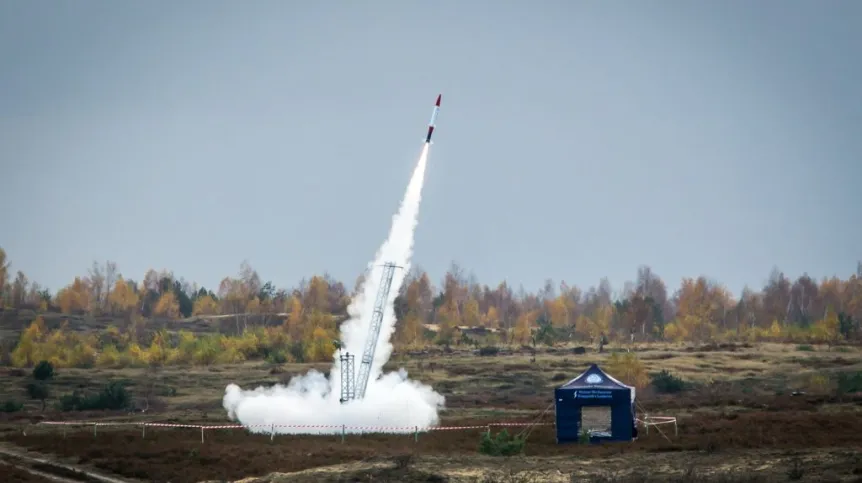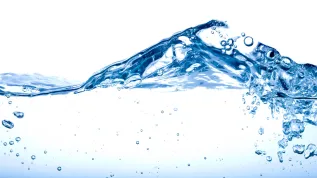
TuCan rocket built by students of Warsaw University of Technology, members of the Students\' Space Association has been launched into the atmosphere from the artillery range near Toruń.
The first launch of TuCan rocket took place on October 29.
"This is a very important day for our team. Individual subsystems can only be accurately checked in real conditions that accompany the launch into the atmosphere. TuCan rocket is an innovative project because it is capable of carrying more experiments than its counterparts in the CanSat Launcher family" - said Tadeusz Górnicki, coordinator of the Rocketry Section of the Students\' Space Association, just before the rocket launch.
TuCan can be used to lift small research instruments into the atmosphere. On board the rocket there is enough space for eight experiments, so-called CanSats. They have small sizes - similar to a 0.33 l beverage can - and weight (approx. 350 grams). The rocket is over 2 meters in length, and its take-off weight is approx. 28 kg.
The unit launched from Toruń reached an altitude of approx. 3500 meters.
"TuCan rocket design is based on previous projects that we carried out, for example the supersonic rocket H1. Tucan has mainly composite structure. We were not able to completely avoid using metal components. Where they were necessary, we have used lightweight aluminium alloys" - David Cieśliński, one of the designers of the rocket and a member of the Students\' Space Association said at the artillery range near Toruń.
Work on the project began in 2013. It gained momentum two years later, thanks to a grant from the company Raytheon. 50 thousand US dollars helped to carry out detailed analyses of the strength, aerodynamics, stability and heat transfer. Most parts of the rocket TuCan device have been manufactured in Poland. Students of Warsaw University of Technology designed and built the engine head and body themselves.
Next year, the Students\' Space Association wants to organize CanSat competition in Poland. This would be the first such competition for students. In 2016, junior high school students and high school students competed in a similar event.
PAP - Science and Scholarship in Poland
twie/ dym/ mrt/
tr. RL













